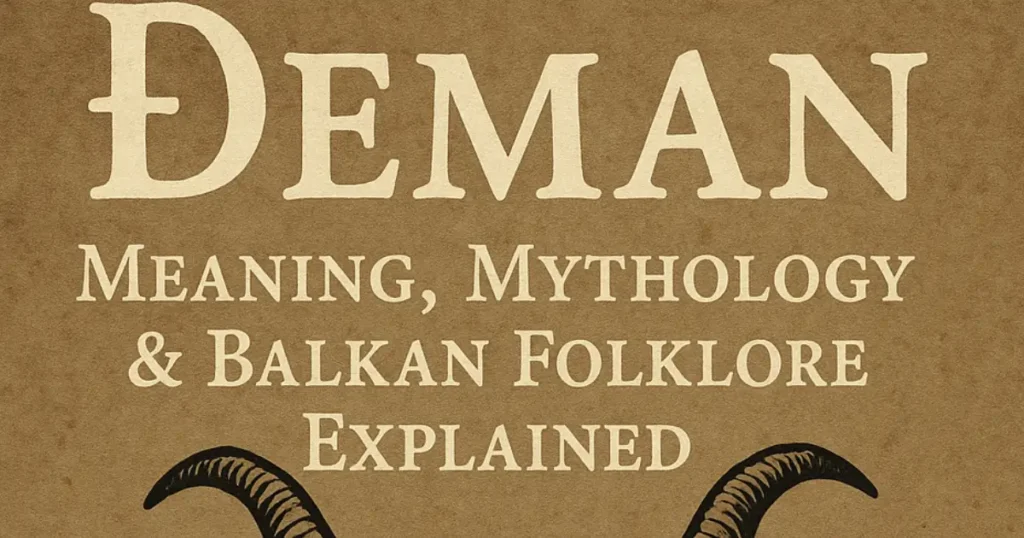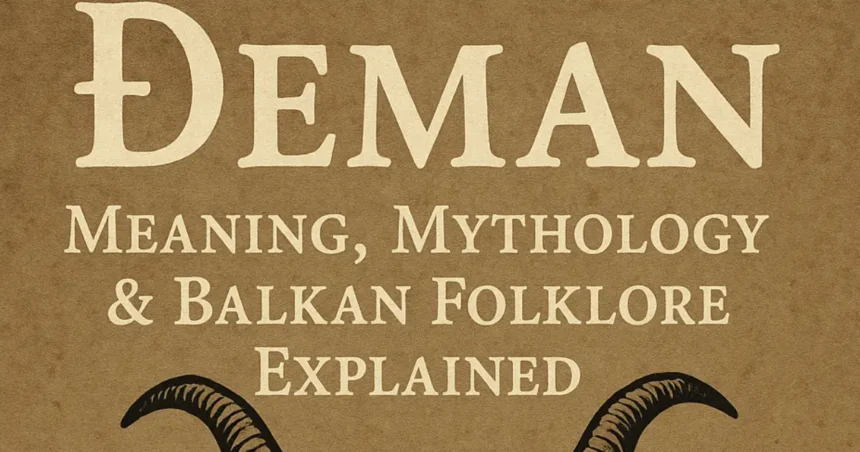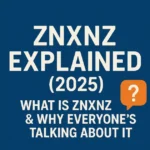
A Deman is a mythical or supernatural being deeply rooted in Slavic and Balkan tradition. Similar to demons in Western mythology, is often portrayed as a dark or malevolent spirit, but the folklore around it is much more nuanced. In some cultures, đemans are tricksters, spiritual beings, or entity guardians rather than purely evil creatures.
Did You Know?
They term appears in old Bosnian, Serbian, and Montenegrin oral traditions, long before the era of written records.
Etymology and Alternative Spellings
The word “đeman” is phonetically similar to the Arabic “djinn” or Turkish “cin,” and etymologists believe it may derive from Ottoman influence on the Balkans.
Common Variants:
- djeman
- džeman
- demon (Westernized translation)
- đin (related Balkan slang)
These variations often appeared in different dialects across Balkan villages as stories were passed down.
Đeman in Slavic and Balkan Folklore
In traditional Balkan stories, are attributed to:
- Guarding cursed treasures
- Haunting ancient ruins or monasteries
- Trickery in the forest or under bridges
- Shape-shifting and seduction of humans
They were never fully devilish—instead, they were seen as morally ambiguous, similar to Celtic fae creatures or Arabian djinns.
Đeman vs. Demon: Understanding the Difference
While “đeman” may sound like “demon,” the two are not identical in mythological or cultural function.
| Feature | Đeman | Western Demon |
|---|---|---|
| Origin | Slavic/Balkan | Christian/Judeo-Christian |
| Role | Spirit, neutral/chaotic | Purely evil, satanic |
| Behavior | Trickster, guardian | Corrupting, possessing |
| Goal | Maintain balance or seek mischief | Destroy morality, serve evil |
“May scare you, but teach you something; a demon wants to destroy you.” — Balkan Proverb
The Symbolism of the Đeman
In spiritual conversations among Balkan shamans and elders and symbolizes:
- Temptation
- Testing human resolve
- Shadow self (psychologically)
- Balance between good and evil forces
Some modern therapists even use the symbolism of the “đeman” to help patients confront their inner darkness—a kind of Jungian shadow work.
Cultural Impact in Literature and Media
Though not as globally known, the presence of đeman-like figures can be found in:
- South Slavic literature and folk tales
- Indie video games and horror films (particularly in Serbia and Bosnia)
- Academic works on Slavic mythology
Examples:
- “Noćni Đeman” – a folk tale told in rural Montenegro about who tests village morals.
- “The Forest Walker” – an indie film (2021) that features a character based on Balkan đeman myths.
Religious Interpretation and Controversy
In Islamic, Christian, and even pre-Christian pagan worldviews, beings like created tension:
- Christianity equated them with demons (evil spirits)
- Islam often related them to jinn
- Paganism embraced them as nature guardians or morally-flexible entities
Controversial Beliefs:
- Some religious groups banned storytelling
- Others used them in fear pedagogy (“be good, or they will visit at night!”)
Modern Usage of the Word “Đeman”
Today, is used in slang, music, and cultural expression in parts of the Balkans and the diaspora.
Popular Modern Usages:
- “Don’t wake the đeman in me” – meaning “don’t make me angry”
- In rap music: metaphor for inner struggle
- Girl name in fiction: as a mystic or rogue character
FAQs:
Is a “đeman” the same as a demon?
Not exactly. A đeman is a Slavic/Balkan spirit, often morally neutral or mischievous—not purely evil like Western demons.
Where can you find legends of the đeman?
Local traditions in Serbia, Bosnia, Montenegro, and Croatia often include spoken or written đeman stories.
Are đemans real?
There’s no scientific evidence, but they are symbolically real in storytelling and folklore.
How do you pronounce “đeman”?
It is pronounced as [djeh-mahn]—with a soft “đ” sounding like “j” in “juice.”
Conclusion and Reader Engagement
The concept of the opens up an enchanting world of myth, culture, and the supernatural that sets itself apart from mainstream interpretations of evil spirits. Whether viewed as warning spirits, guardians, or shadows of the self, they continue to be a powerful part of Balkan storytelling.








